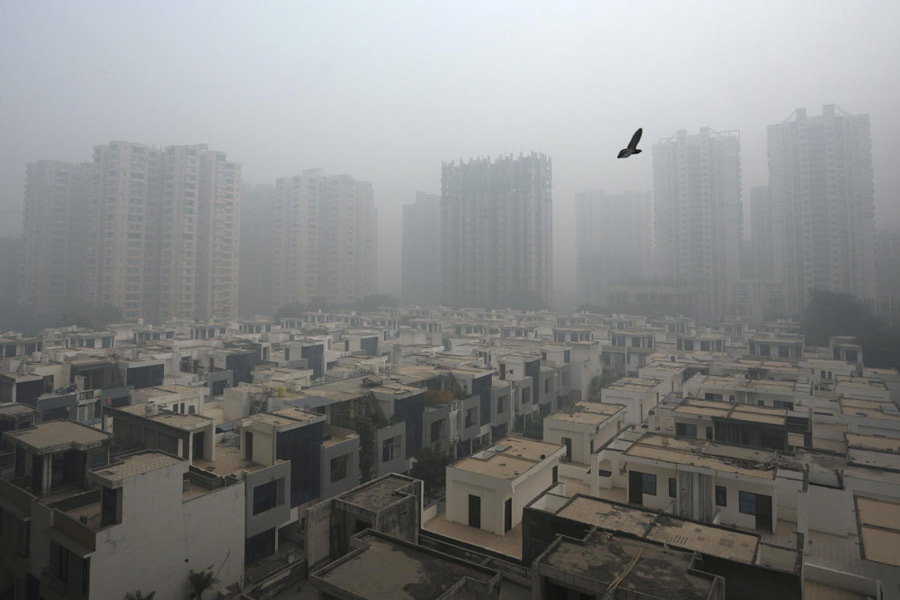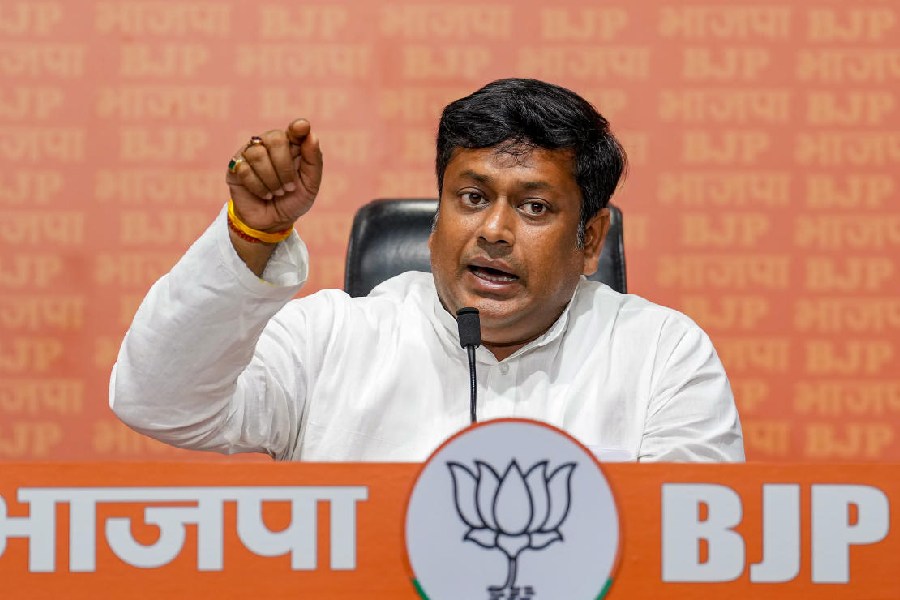With Delhi's air quality breaching the 'severe plus' category and hitting the season's worst levels on Monday, doctors have raised concerns about its health risks, cautioning that the toxic air can harm not just vulnerable groups but also healthy individuals.
Doctors advised residents to limit outdoor activities, stay hydrated and use air purifiers with HEPA filters to reduce indoor particulate matter. Those with pre-existing lung or heart conditions should remain vigilant and stick to their medications, the doctors advised. Delhi's air quality hit a new low on Monday with an Air Quality Index 484 at 8 am and further deteriorating to 490 by 1 pm. Some monitoring stations, including Dwarka Sector 8, Najafgarh, Nehru Nagar and Mundka, reported the maximum AQI level of 500, according to the Central Pollution Control Board (CPCB).
"At this level of pollution, wearing an N95 mask is not an option but a necessity. Even healthy individuals can fall victim to respiratory illnesses and (face) other health complications," said Dr. Rajat Sharma, Resident Doctor of Community Medicine at UCMS & GTB Hospital.
He further explained that unlike surgical or cloth masks, which often fail due to poor fitting and inadequate filtration, N95 masks provide superior protection.
"The severe air pollution levels we are witnessing demand immediate protective measures, making mask use a non-negotiable priority. This isn't just about vulnerable populations anymore. Healthy individuals are equally at risk," said Sharma.
Dr. Ujjwal Parakh, Senior Consultant, Department of Chest Medicine at Sir Ganga Ram Hospital, emphasised that people need to be extremely cautious. "Everyone should avoid outdoor activities as much as possible and use masks to reduce the effects of air pollution if they must go out." He advised keeping windows and doors closed and using HEPA-filter air purifiers. "It is also important to drink plenty of liquids to stay hydrated," Parakh added. "Those with lung diseases should take extra precautions and stay regular with their medications." Parakh also highlighted the limitations of masks at such high pollution levels, explaining that while N95 and N99 masks are effective against particulate matter (PM2.5 and PM10), they cannot filter out harmful gases like ozone, nitrogen dioxide, or volatile organic compounds (VOCs).
He advised replacing masks frequently, saying they lose their filtering capacity with regular usage. Additionally, it's crucial to ensure that the mask fits properly and is free of leaks, as improper fit can reduce its effectiveness.
With AQI levels this high, exposure to the toxic air can trigger severe respiratory problems, cardiovascular issues, and even long-term complications, he said.
Since Sunday morning, the Air Quality in the national capital has breached the 450 level multiple times, with the severe plus level crossed by Monday afternoon.
In response to the pollution levels, the Commission for Air Quality Management (CAQM) enforced Stage IV of the Graded Response Action Plan (GRAP) on November 18. This includes a complete halt on construction activities, a ban on trucks and commercial vehicles with older emission standards, and the suspension of certain industrial operations.
Experts attribute the worsening air quality to a combination of stagnant wind conditions, high local emissions, and stubble burning.
"Delhi's AQI has deteriorated from 417 on November 16 to 441 on November 17, and now nearly 500. Low wind speeds and a dense fog episode on the morning of November 17 caused pollutants to accumulate closer to the ground," said Priyanka Singh, Programme Lead at the Council on Energy, Environment, and Water (CEEW).
She added that stubble burning has contributed more than 20 percent to Delhi's PM2.5 levels since November 14.
Additionally, the dense fog reduced the mixing layer height, further trapping pollutants near the surface.
Experts and activists believe that short-term measures are not enough to combat the crisis. "While GRAP measures are crucial during emergencies, Delhi's air pollution crisis needs sustained year-round attention. Long-term solutions targeting major contributing sectors like transportation, industry, and stubble burning are essential," Singh added.
Residents have complained of dryness, itchy eyes, and heaviness while breathing even inside their homes.
Dilshad Garden-resident Ravi Kumar said he is having itchy eyes he is facing breathing difficulty for the past two-three days.
Masheshi Sharma said her third-floor house looks like it is covered by a blanket of smog and while breathing it feels like she is inhaling smoke.
Except for the headline, this story has not been edited by The Telegraph Online staff and has been published from a syndicated feed.










